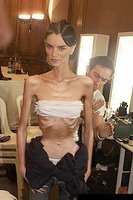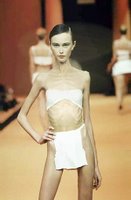December...
 December is coming and with it the lights of Christmas.
December is coming and with it the lights of Christmas.To encourage my students to write in English. Lets have fun
 December is coming and with it the lights of Christmas.
December is coming and with it the lights of Christmas. Anorexia made another victim.
Anorexia made another victim.
 Girls with anorexia usually stop having menstrual periods, have dry skin and thinning hair on the head. They may feel cold all the time, and they may get sick often. They are often in a bad mood. They have a hard time concentrating and are always thinking about food.
Girls with anorexia usually stop having menstrual periods, have dry skin and thinning hair on the head. They may feel cold all the time, and they may get sick often. They are often in a bad mood. They have a hard time concentrating and are always thinking about food.  must want to change and must have family and friends to help them.
must want to change and must have family and friends to help them.Escola Secundária de Felgueiras
Programa para o debate sobre a educação, no âmbito do Debate Nacional sobre Educação”, promovido pelo Conselho Nacional de Educação, subordinado ao tema “Como Vamos Melhorar a Educação nos Próximos Anos?”
Organização:
Escola Secundária de Felgueiras / GAPE (Gabinete de Apoio a Projectos Educativos)
Local:
Auditório da Escola Secundária de Felgueiras
Data:
24 de Novembro de 2006 - 21 horas
Intervenientes:
Representante do Ensino Superior(U. Minho)- Dr. Lino Moreira
Conselheiro de CNE - Dr. Davide Castro Dias
Presidente do Conselho Executivo - Dr. Pedro Araújo
Vereador do Pelouro da Educação e Cultura - Dr. João Garção
Representante da Associação de Pais
Representante da Associação de Alunos
Relatores:
Dr.ª Engrácia Pereira
Dr.ª Rosa Guimarães
Lúcia Guimarães
Público – Alvo:
Professores em geral, pais e encarregados de educação, autarquia, alunos e outros…
Programa
Área Temática:
“Medidas e Metas para Melhorar a Educação em Portugal”
Questões em debate:
.Que organização escolar poderá melhorar o processo educativo?
.Como fomentar uma melhor articulação entre Escola / Professores / Encarregados de Educação.
De que forma?
Em que matérias?
.Como promover uma melhor articulação entre a educação escolar e outras formas de aprendizagem para que todos exerçam uma cidadania activa e responsável?
. Que mais podem (e vão) as autarquias / comunidades locais fazer pela Escola / Educação
. Em que medida a actividade do professor é preponderante na melhoria da Educação?
Organização: GAPE – Dr.ª(s) Ofélia Ribeiro - Engrácia Pereira - Isabel Lima - Rosa Guimarães


